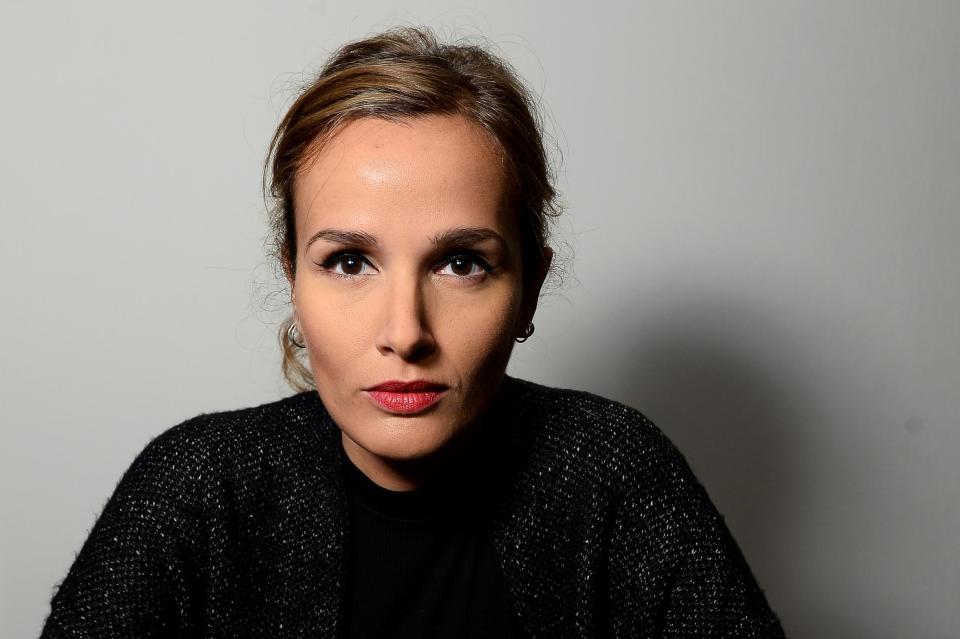Raw director Julia Ducournau talks cannibals, humanity, and fainting

Where does one start when talking about Raw – the much-praised French-language “horror” that reportedly had audiences in Toronto fainting? First off, we should probably not call Julia Ducournau’s film a horror despite what the marketing team says.
“I think it’s a crossover between comedy, drama and body horror,” she tells me. “It has a lot of comedic scenes.”
Raw centres on a teenage vegan named Justine, played by Garance Marillier, who is leaving her overly protective family to go to veterinary school. Unlike her peers, though, Justine hasn’t experienced party culture before and takes some time adjusting to the college lifestyle, particularly the partying and witnessing others who eat meat. While Ducournau would rather viewers went in knowing as little about the film as possible, it should be noted the main horrors within Raw regard cannibalistic tendencies.
“It’s so hard for people to accept cannibalism,” she says. “Because cannibalism is one of three taboos we have in humanity: murder, incest and cannibals. It’s the only taboo when treated on screen is treated like it doesn’t exist. Cannibals are treated like ‘they’. They are a tribe, a group, anonymous. Like zombies, they don’t exist. Unlike murderers.”
Ducournau uses the film Seven as an example, saying that we don’t leave that film thinking the characters aren’t human just because they murder. “You treat it with a level of humanity. But with cannibalism, no. It’s too present in us. Because the animal inside our bodies can’t escape. It’s here, on many levels, still inside us. That’s why we would rather treat cannibals as if they don’t exist and are outside of humanity. It’s too close.”

Watching Raw, there’s something incredibly disconcerting when these characters begin to literally eat one another, mainly because the line between eating meat and other humans is so blurred. Yet, some of the most uncomfortable moments don’t come when one person attempts to eat another. Multiple scenes, for instance, see Justine scratching herself underneath her duvet, the sound of itching piercing through.
“I didn’t make this movie for it to be scary,” she explains. “When I watch horror – and I watch four horror movies a week – I am searching for one that is going to really scare me. I want to be scared, to jump out of my seat and yell. But I did not make this movie like that. I didn’t use jump scares. You are disturbed, that’s my aim. To shake you to the core.”
People certainly have been shaken. After the aforementioned Toronto screening, paramedics were reportedly called to the cinema because people were left so shaken. There have even been sick bags given out in cinemas in case people feel the need to throw up. Ducournau, though, doesn’t want this to cloud people’s thoughts about the film.

“At some point people stopped talking about my movie and started calling it the goriest movie ever made,” she says. “They said it was a shocker, or torture porn but it’s not even in the same family of cinema. I started reading headlines that made no sense. Headlines reading ‘waves of people fainting in theatres’. I’m sorry, I think it’s bullshit. It’s a shame because some people might be scared to see the movie, when they could have handled it well. And some people who are actually expecting torture porn are going to be disappointed.”
Instead, the director would rightly much rather the discussion around Raw centre on the question of what it means to be human, something that she says perpetrates all her work. The idea links back to her comments on cannibalism, about wanting to show a darker side to humanity that we rarely explore on screen.
“You have to accept some parts of us that are hard to watch, hard to acknowledge because it’s in us, because it’s scary. I do think you need that to grow up, as a human and as a society.”
The most human character ever portrayed on screen, for Ducournau at least, is Joseph Merrick in The Elephant Man: “It’s the essence of humanity. I have a very passionate relationship with that movie that puts me in shambles every time I watch it. For me, the character is pure poetry. He is what humanity should be, and what it’s not. That’s why I cry. We should be like him and we’re not like him.”
If The Elephant Man is the epitome of presenting humanity, then why horror? “Since I was a kid I was always interested in an alternative reality. When you’re a kid, parents and adults try to sugarcoat everything. In certain texts – such as Bluebeard, which was my favourite fairytale - they’re cruel. Although, when you read The Little Mermaid it’s terribly depressing, Bluebeard is somehow more in your face and direct about how evil humans can be. You’re always looking for the truth and I found a form of truth, first in fairytales and then in horror movies.”
As for future projects, Ducournau cannot reveal any information, but expect our humanity to be questioned once more. And probably some more discomfort.
Listen to the full interview in our bi-weekly podcast in the coming weeks. ‘Raw’ is out in UK cinemas 7 April.

 Yahoo Movies
Yahoo Movies 